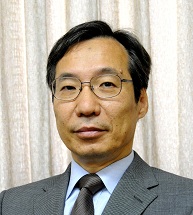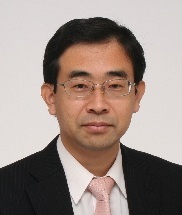※ Affiliations and titles are as of the end of the research activity.
Strategic Objective
Research Supervisor

Kenji Taniguchi(Specially Appointed Professor, Graduate School of Engineering, Osaka University)
Deputy Research Supervisor

Hiroyuki Akinaga(Principal Research Manager, National Institute of Advanced Industrial Science and Technology (AIST))
Outline
Research Area Advisors
・Toshiaki Aoai
Advisor, MURAKAMI CO.,LTD.
・Hideo Ohno
Professor, Director, Research Institute of Electrical Communication, Tohoku University (~ March 2018)
・Eiji Saitoh
Professor, School of Engineering, The University of Tokyo
・Naoki Shinohara
Professor, Research Institute for Sustainable Humanosphere Kyoto University
・Kenji Shiraishi
Professor, Institute of Materials and Systems for Sustainability Nagoya University
・Mariko Takayanagi
Expert, Technology Planning Division, Toshiba Electronic Devices & Storage Corporation
・Keiji Takeuchi
Senior Manager, Socio & Eco Strategic Consulting Unit NTT Data Institute of Management Consulting, Inc.
・Hiroyuki Fujita
Specially-appointed Professor, Advanced Research Laboratories, Tokyo City University
・Hiroshi Funakubo
Professor, School of Materials and Chemical Technology, Department of Materials Science and Engineering, Tokyo Institute of Technology
・Kenjiro Miyano
Fellow, National Institute for Materials Science
・Yuka Yamada
Assistant Director General, Department of Information Technology and Human Factors, National Institute of Advanced Industrial Science and Technology
Step-up evaluation
In this area, the research period is divided into two phases: the first half one to research the creation of more basic science and technology, and the second to tackle the verification and demonstration of new principles, new materials and new devices.
Based on the fundamental science and technology created in the first half phase, research teams and researchers inside and outside the domain (CREST, PRESTO cooperates) mutually cooperated and submitted research proposals for the latter phase with a new team structure. The following teams have been accepted after the step-up evaluation.
As a “valuable fundamental research”, we will work to develop and strengthen with a view to leading to cooperation with the industry.
Step-up evaluation adopted research teams: 2019
Step-up evaluation adopted research teams: 2020
Step-up evaluation adopted research teams: 2021
Year Started : 2015
Research Director:
Toshiyuki Ueno(Associate Professor, Faculty of Electrical and Computer Engineering, Institute of Science and Engineering, Kanazawa University)
Research Director:
Takuro Katsufuji(Professor, Department of Physics, Waseda University)
Development of Innovative Electret Material for High-output-power Energy Harvesting
Research Director:
Yuji Suzuki(Professor, Graduate School of Engineering, The University of Tokyo)
Electret MEMS Vibrational Triboelectric Generation
Research Director:
Hiroshi Toshiyoshi(Professor, Institute of Industrial Science, The University of Tokyo)
Research Director:
Satoru Nakatsuji(Professor, Institute for Solid State Physics, University of Tokyo)
Development of novel magnetic semiconductor thermoelectric materials and power generation devices
Research Director:
Takao Mori(Principal Investigator, International Center for Materials Nanoarchitectonics (WPI-MANA), National Institute for Materials Science)
Development of Silicon-Based Thermoelectric Device Utilizing Computational Phononics
Research Director:
Takanobu Watanabe(Professor, Faculty of Science and Engineering, Waseda University)
Year Started : 2016
Scavenging nW RF energy using Super Steep Transistor and Meta-Material Antenna
Research Director:
Koichiro Ishibashi(Professor, Graduate School of Informatics and Engineering, The University of Electro-Communications)
Electric power generation by flow of electrolyte solution with ultra-thin film materials
Research Director:
Yutaka Ohno(Professor, Institute of Materials and Systems for Sustainability, Nagoya University)
Development of ambient RF energy-harvesting devices using semiconductor nanowires
Research Director:
Kenichi Kawaguchi(Research Manager, Mobile Systems Business Unit, FUJITSU LIMITED)
Research Director:
Isaku Kanno(Professor, Department of Mechanical Engineering, Kobe University)
Research Director:
Junichiro Shiomi(Professor, School of Engineering, the University of Tokyo)
Development of thermoelectric materials by use of synergetic effect of rattling and lone-pairs
Research Director:
Chul-Ho Lee(Research Group Leader, Research Institute for Energy Conservation, National Institute of Advanced Industrial Science and Technology)